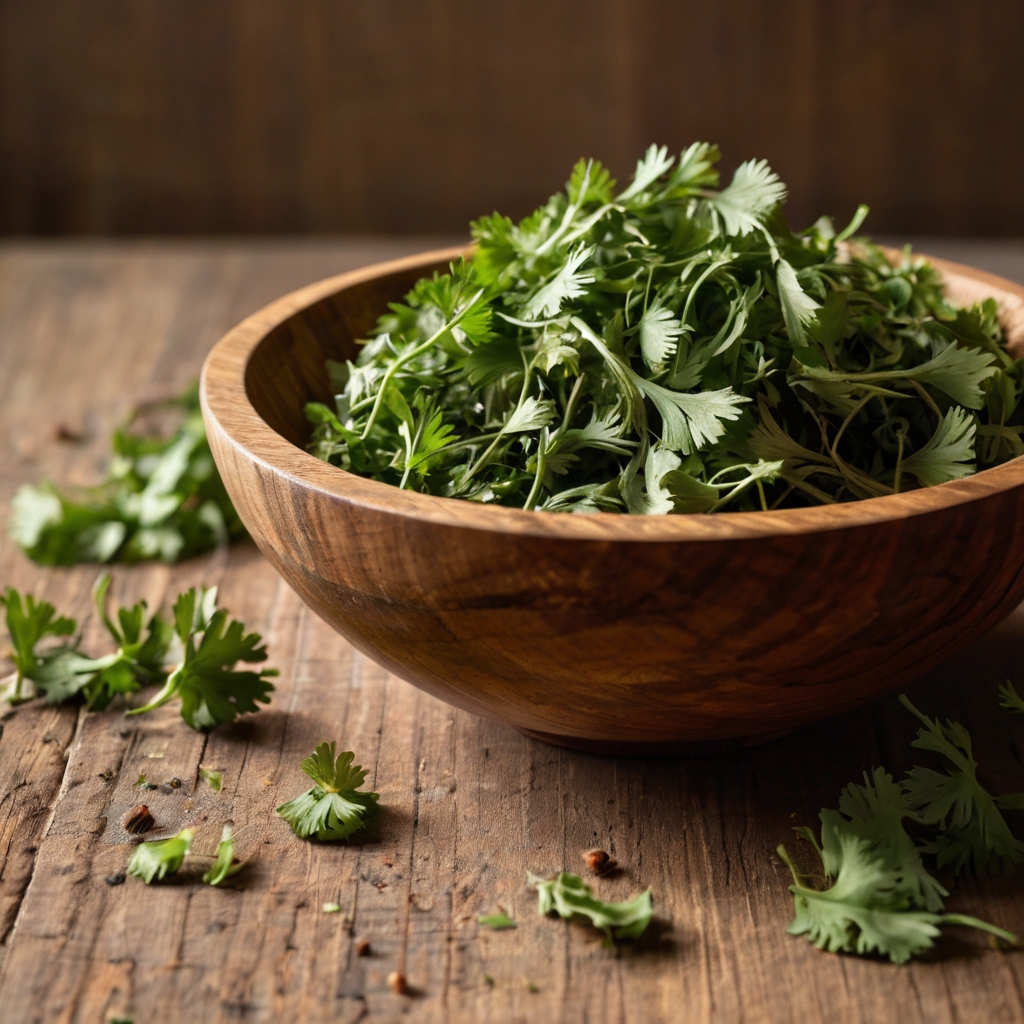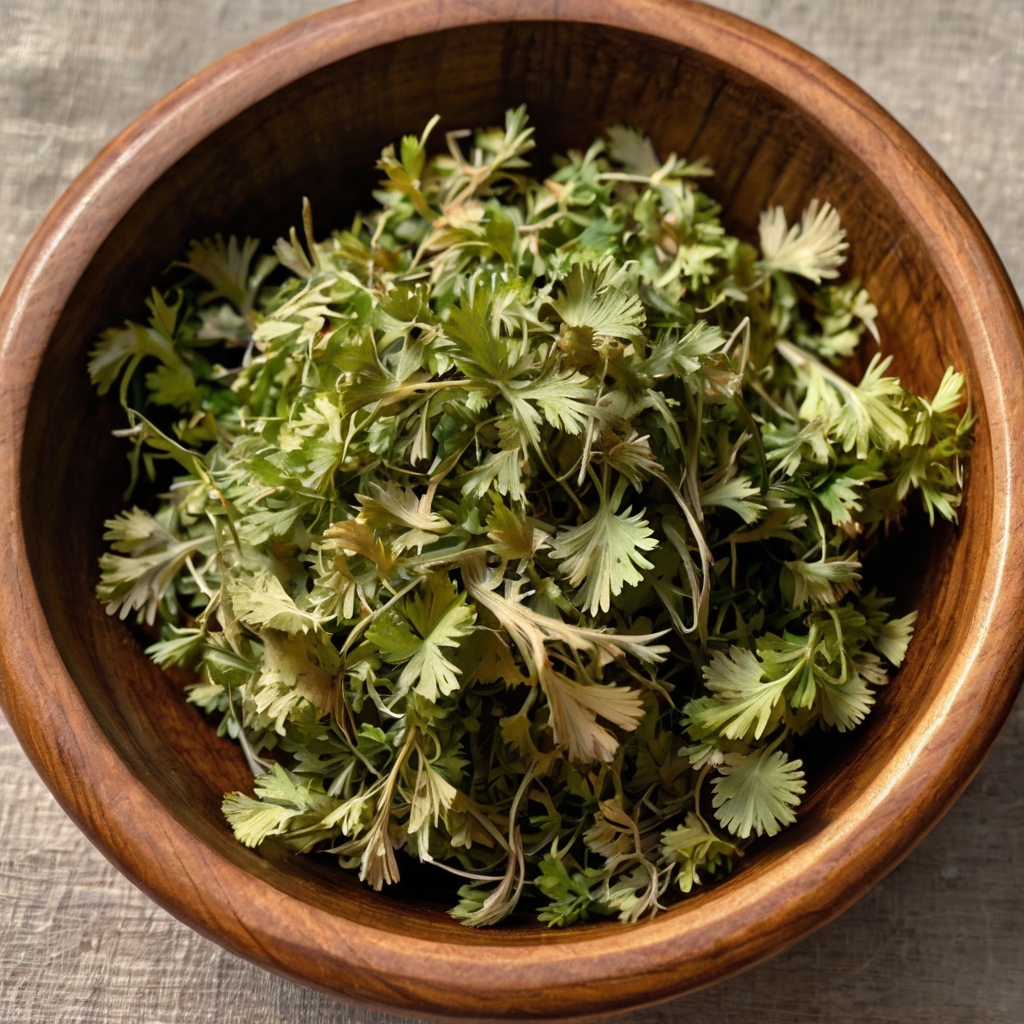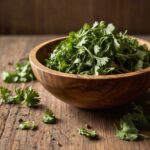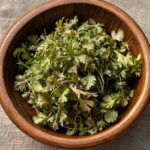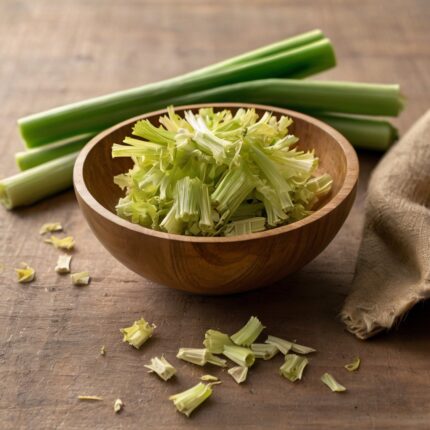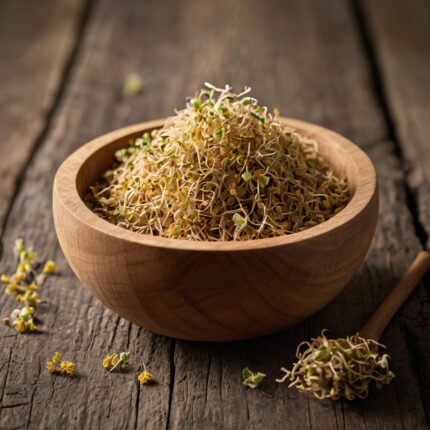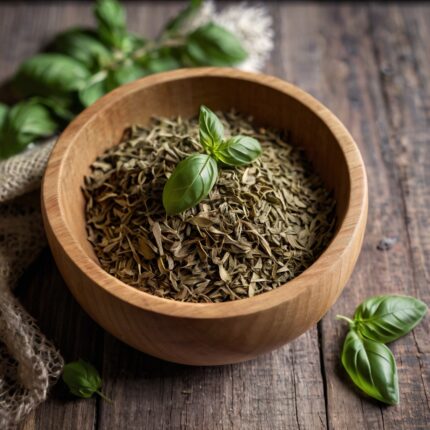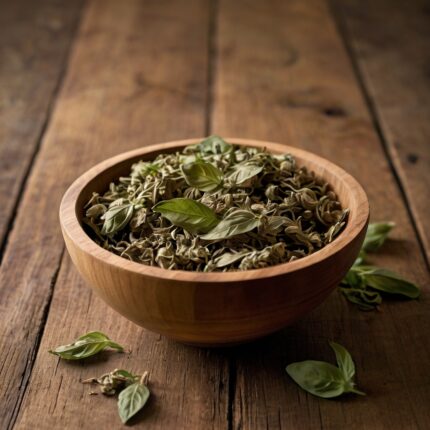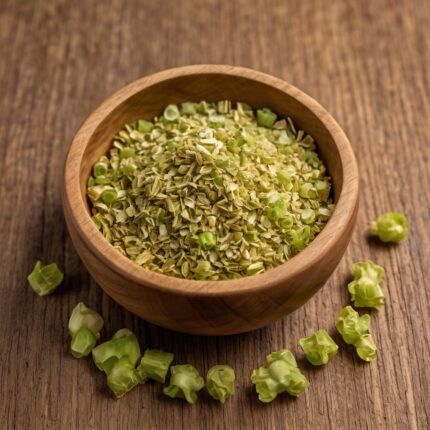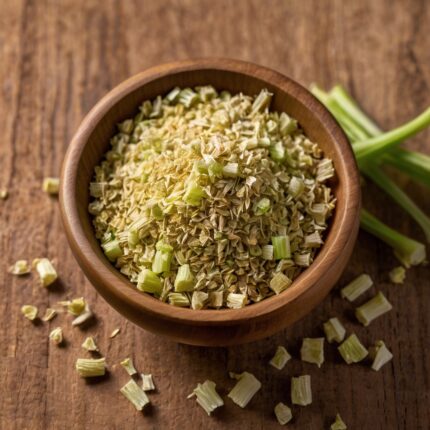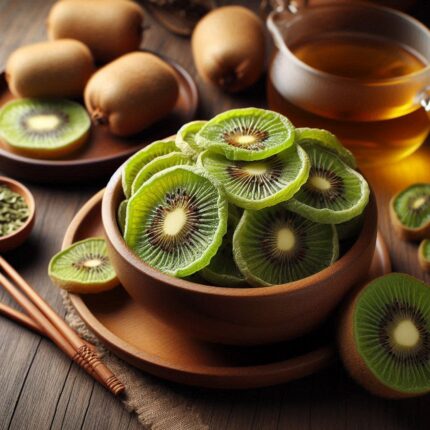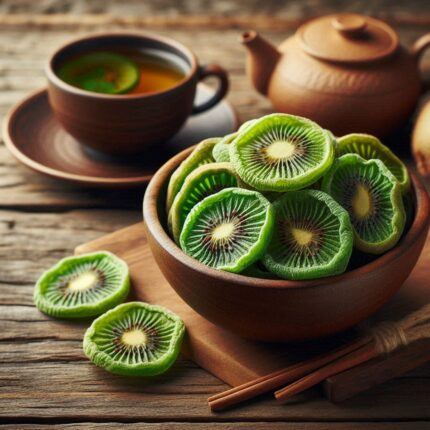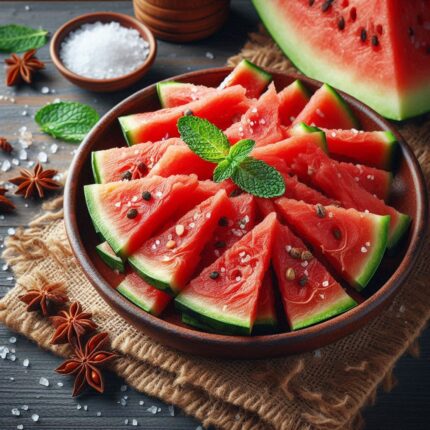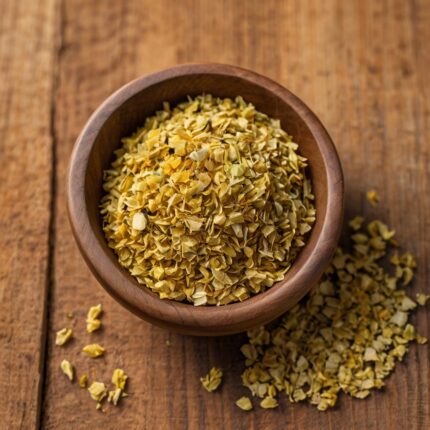Dried cilantro (Coriandrum sativum) refers to the dried form of the cilantro plant, which is widely used in cooking, especially in Latin American, Indian, and Middle Eastern cuisines. The cilantro plant includes both its leaves and seeds; the dried leaves are known as dried cilantro, while the seeds are referred to as coriander seeds. Dried cilantro provides a way to preserve the flavor of fresh cilantro for long-term storage and use.
Applications of dried celery:
-
Culinary applications:
Dried celery has a distinct flavor compared to fresh celery, with a more subtle, earthier, and less sharp taste. While fresh celery is often used as a garnish, dried celery is typically incorporated into dishes that have enough cooking time for the flavor to infuse. Below are some common ways dried celery is used:- Seasoning for meats: Dried celery is often used in seasoning blends for meats, especially in Mexican, Indian, Middle Eastern, and Caribbean cuisines. It works well in marinades and seasonings for chicken, lamb, beef, or pork.
- Soups and stews: Add dried celery to soups, curries, or stews to give them a strong flavor. It works well in both tomato-based soups and spicy Indian stews.
- Rice and grains: Dried celery can be incorporated into rice dishes or grain salads, especially in Latin or Middle Eastern cuisines. It is often combined with cumin, garlic, and onion to prepare flavorful rice dishes and recipes.
- Sauces and salsas: While fresh celery is often used in sauces and dips, dried celery can be used in cooked sauces, gravies, or chutneys to enhance the flavor.
- Vegetable dishes: Sprinkle dried celery over grilled vegetables or add it to vegetable stews, soups, and stir-fries to enhance the flavor with a fresh, herbaceous note.
- Spice blends: Dried celery is often included in spice blends such as garam masala, taco seasoning, and Cajun seasoning. It also pairs well with other spices like cumin, parsley, and thyme.
- Salads and dressings: You can add dried celery to salad dressings or vinaigrettes. It is often used in sour and lemon-based sauces for salads inspired by Mexican or Mediterranean cuisine.
-
Medicinal and health applications:
- Digestive health: Celery has traditionally been used to aid digestion and relieve gastrointestinal discomfort. It can help reduce bloating, stomach upset, and gas.
- Detoxification: Celery is known for its ability to help remove heavy metals, such as mercury and lead, from the body. It is often included in detoxification protocols.
- Blood sugar regulation: Some studies suggest that celery may help regulate blood sugar levels, making it beneficial for individuals with diabetes or those at risk.
- Antioxidant support: The antioxidants in dried celery can help combat oxidative stress in the body and reduce the risk of diseases associated with free radical damage, such as cancer and heart disease.
- Anti-inflammatory: The anti-inflammatory properties of celery can help reduce symptoms of conditions such as arthritis, joint pain, and even skin inflammation.
- Cholesterol management: Celery may help reduce bad cholesterol (LDL) and improve overall lipid profiles, which supports heart health.
-
Natural remedies:
- Celery tea: Dried celery can be steeped in hot water to make a detoxifying tea. It may aid digestion, reduce anxiety, and promote sleep. Honey or lemon can be added for flavor.
- Celery oil: Celery oil (which can be extracted from dried celery leaves) has antimicrobial properties and is sometimes used in natural skincare to help with acne and inflammation.
- Celery juice: Some people prepare celery juice, which is believed to have detoxifying benefits, particularly for removing heavy metals from the body.
-
Aromatherapy:
- Essential oils: Celery essential oil, extracted from the leaves and seeds, is sometimes used in aromatherapy for its calming effects. It can also be incorporated into massage oils to help reduce inflammation and pain.
- Skin care: The antibacterial and antioxidant properties of celery oil may make it beneficial for treating acne or soothing irritated skin. It can be mixed into homemade lotions or applied diluted to the skin.
-
Insect repellent:
- Celery scent: Celery has a strong and distinct aroma that may help repel insects. While it is not as potent as some other natural repellents, it can be used in homemade sprays or in areas to keep mosquitoes or other pests away.
| Nutrients | Amount per 100 grams: |
| Calories | 298 |
| portoin | 12–15 g |
| fat | 7 g |
| Saturated Fat | 1–1.5g |
| Carbohydrates | 55–60g |
| Dietary Fiber | 40–45 g |
| suger | 2–3 g |
| vitamin A | 7,000–9,000 |
| C | 27 |
| K | 800 |
| Folate: | 130 |
| B6 | 0.3 mg |
| Calcium: | 300 mg |
| iron | 10mg |
| Magnesium: | 60–80mg |
| Potassium: | 450–500mg |
| zinc | 1–2mg |
